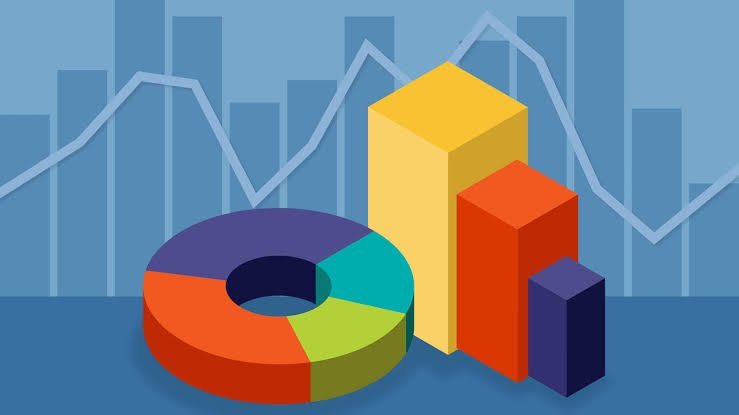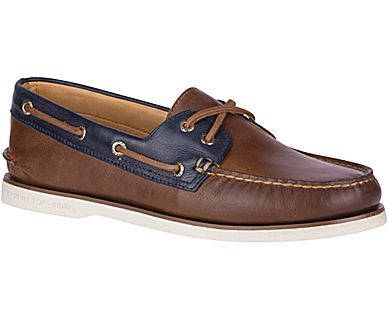If you’re looking for a new workout, or just trying to mix things up, then this is the article for you. We’ll be talking about the best post-workout exercises that can help you lose weight. The first thing we need to do is get one thing straight: exercising alone won’t get you the results you want. You need to make sure that your diet is on point as well. What you eat will impact how healthy your body will become, so don’t forget about that!
Now that we’ve got the basics out of the way, let’s dive into what makes a good post-workout exercise for weight loss!
Right here on Buy and Slay, you are privy to a litany of relevant information on what to drink after workout to lose weight, post workout protein shakes you can prepare at home, what to eat after workout at night, and so much more. Take out time to visit our catalog for more information on similar topics.
Best Post Workout For Weight Loss
To understand how the right foods can help you after exercise, it’s important to learn how physical activity affects your body.
When you’re working out, your muscles use up their glycogen — the body’s preferred fuel source especially during high- intensity workouts. This results in your muscles being partially depleted of glycogen. Some of the proteins in your muscles can also be broken down and damaged.

After your workout, your body tries to rebuild its glycogen stores as well as repair and regrow those muscle proteins. Eating the right nutrients soon after you exercise can help your body get this done faster. It’s especially important to eat carbs and protein after your workout.
Doing this helps your body:
- decrease muscle protein breakdown
- increase muscle protein synthesis (growth)
- restore glycogen stores
- enhance recovery
SUMMARY
Getting in the right nutrients after exercise can help you rebuild your muscle proteins and glycogen stores. It also helps stimulate new muscle growth.
Protein, carbs, and fat
Each macronutrient — protein, carbs, and fat — is involved in your body’s post-workout recovery process. That’s why it’s important to have the right mix.
Protein helps repair and build muscle
Exercise triggers the breakdown of muscle protein. The rate at which this happens depends on the exercise and your level of training, but even well-trained athletes experience muscle-protein breakdown,
Consuming an adequate amount of protein after a workout gives your body the amino acids it needs to repair and rebuild these proteins. It also gives you the building blocks required to build new muscle tissue.
It’s recommended that you consume 0.14–0.23 grams of protein per pound of body weight (0.3–0.5 grams/kg) very soon after a workout.
However, one study found that eating protein pre-workout and post-workout has a similar effect on muscle strength, hypertrophy, and body composition changes.
Studies have shown that ingesting 20–40 grams of protein seems to maximize the body’s ability to recover after exercise.
Carbs help with recovery
Your body’s glycogen stores are used as fuel during exercise, and consuming carbs after your workout helps replenish them.
The rate at which your glycogen stores are used depends on the activity. For example, endurance sports cause your body to use more glycogen than resistance training. For this reason, if you participate in endurance sports (running, swimming, etc.), you might need to consume more carbs than someone engaging in weightlifting.
Consuming 0.5–0.7 grams of carbs per pound (1.1–1.5 grams/kg) of body weight within 30 minutes after training results in proper glycogen resynthesis.
Furthermore, insulin secretion, which promotes glycogen synthesis, is better stimulated when carbs and protein are consumed at the same time.
Therefore, consuming both carbs and protein after exercise can maximize protein and glycogen synthesis.
Try consuming the two in a ratio of 3 to 1 (carbs to protein). For example, that’s 40 grams of protein and 120 grams of carbs.
Eating plenty of carbs to rebuild glycogen stores is most important for people who exercise often, such as twice in the same day. If you have 1 or 2 days to rest between workouts, this becomes less important.
Fat is not that bad
Many people think that eating fat after a workout slows down digestion and inhibits the absorption of nutrients. While fat might slow down the absorption of your post-workout meal, it will not reduce its benefits. For example, a study showed that whole milk was more effective at promoting muscle growth after a workout than skim milk.
Moreover, another study showed that even when ingesting a high fat meal (45% energy from fat) after working out, muscle glycogen synthesis was not affected.
It might be a good idea to limit the amount of fat you eat after exercise, but having some fat in your post-workout meal will not affect your recovery.
SUMMARY
A post-workout meal with both protein and carbs will enhance glycogen storage and muscle protein synthesis. Consuming a ratio of 3 to 1 (carbs to protein) is a practical way to achieve this.
The timing of your post-workout meal matters
Your body’s ability to rebuild glycogen and protein is enhanced after you exercise.
For this reason, it’s recommended that you consume a combination of carbs and protein as soon as possible after exercising. In the past, experts recommended eating your post-workout meal within 45 minutes, as a delay of carb consumption by as little as 2 hours after a workout may lead to as much as 50% lower rates of glycogen synthesis.
However, more recent research has found that the post-exercise window to maximize the muscular response to eating protein is wider than initially thought, up to as many as several hours.
Additionally, if you consumed a meal rich in whole carbs and protein perhaps an hour before exercising, it’s likely that the benefits from that meal still apply after training.
Additionally, recovery is not just about what you consume directly after working out. When you exercise consistently, the process is ongoing. It is best to continue to eat small, well-balanced meals of carbs and protein every 3–4 hours.
SUMMARY
Eat your post-workout meal soon after exercising, ideally within a few hours. However, you can extend this period a little longer, depending on the timing of your pre-workout meal.
Foods to eat after you work out
The primary goal of your post-workout meal is to supply your body with the right nutrients for adequate recovery and to maximize the benefits of your workout. Choosing easily digested foods will promote faster nutrient absorption.
The following lists contain examples of simple and easily digested foods:
Carbs
- sweet potatoes
- chocolate milk
- quinoa and other grains
- fruits (such as pineapple, berries, banana, kiwi)
- rice cakes
- rice
- oatmeal
- potatoes
- pasta
- whole grain bread
- edamame
Protein
- animal- or plant-based protein powder
- eggs
- Greek yogurt
- cottage cheese
- salmon
- chicken
- protein bar
- tuna
Fats
- avocado
- nuts
- nut butters
- seeds
- trail mix (dried fruits and nuts)
Sample post-workout meals and snacks
Combinations of the foods listed above can create great meals that provide you with all the nutrients you need after exercise.
Here are a few examples of quick and easy meals to eat after your workout:
- grilled chicken with roasted vegetables and rice
- egg omelet with avocado spread on whole grain toast
- salmon with sweet potato
- tuna salad sandwich on whole grain bread
- tuna and crackers
- oatmeal, whey protein, banana and almonds
- cottage cheese and fruits
- pita and hummus
- rice crackers and peanut butter
- whole grain toast and almond butter
- cereal with dairy or soy milk
- Greek yogurt, berries and granola
- protein shake and banana
- quinoa bowl with sweet potatoes, berries, and pecans
- whole grain crackers with string cheese and fruit
Make sure to drink plenty of water
It is important to drink plenty of water before and after your workout. When you are properly hydrated, this ensures the optimal internal environment for your body to maximize results.
During exercise, you lose water and electrolytes through sweat. Replenishing these after a workout can help with recovery and performance.
It’s especially important to replenish fluids if your next exercise session is within 12 hours. Depending on the intensity of your workout, water or an electrolyte drink are recommended to replenish fluid losses.
SUMMARY
It is important to get water and electrolytes after exercise to replace what was lost during your workout.
The bottom line
Consuming a proper amount of carbs and protein after exercise is essential.
It stimulates muscle protein synthesis, improves recovery and enhances performance during your next workout.
It is important to not go much longer than a few hours before refueling with a meal or snack.
Finally, replenishing lost water and electrolytes can complete the picture and help you maximize the benefits of your workout.
What To Drink After Workout To Lose Weight
When used alongside healthy lifestyle changes, certain beverages are more effective than others at promoting weight loss.
Beverages like green tea, coffee and high-protein drinks have been shown to boost metabolism, promote fullness and decrease hunger, all of which may encourage weight loss.
Here are eight drinks that are some of the best to include in your diet when trying to lose weight and get healthy.
1. Green Tea

Green tea is often associated with health, and for good reason.
Not only is it packed with beneficial antioxidants and other powerful nutrients, it’s also one of the most effective drinks for weight loss.
Drinking green tea has been shown to decrease body weight and body fat in several studies.
A review of 14 studies found that people who drank high-concentration green tea for 12 weeks lost an average of 0.44 to 7.7 pounds (0.2 to 3.5 kg) more than those who did not drink green tea.
It should be noted that this benefit is linked to green tea preparations that contain high amounts of catechins, antioxidants that may increase fat burning and boost metabolism.
Matcha is a type of green tea that contains a higher amount of catechins than loose leaf green tea, which makes it a good choice for weight loss.
One study found that women who consumed 3 grams of matcha per day experienced greater fat burning during exercise compared to women who did not drink matcha.
Plus, green tea contains caffeine, which can help promote weight loss by boosting energy levels and improving performance while exercising.
What’s more, people who drink green tea tend to have lower blood pressure and a lower risk of developing diseases such as heart disease, certain cancers and diabetes.
SUMMARY
Drinking green tea may help you lose weight by boosting metabolism and encouraging fat loss.
2. Coffee
Coffee is used by people around the world to boost energy levels and lift mood.
This is because coffee contains caffeine, a substance that acts as a stimulant in the body and may benefit weight loss.
Coffee can reduce energy intake and boost metabolism, which may help you lose weight.
One study in 33 overweight adults found that those who drank coffee containing 6 mg of caffeine per kilogram of body weight consumed significantly fewer overall calories than those who drank less caffeine or no caffeine at all.
Caffeine intake has also been shown to increase metabolism and promote fat burning in several other studies.
Coffee drinkers may have an easier time maintaining their weight loss over time, as well.
A study in over 2,600 people found that those who were successful in maintaining weight loss over time drank significantly more caffeinated beverages than a control group.
SUMMARY
Caffeinated beverages like coffee may stimulate weight loss by increasing metabolism, decreasing calorie intake and stimulating fat burning.
3. Black Tea
Like green tea, black tea contains compounds that may stimulate weight loss.
Black tea is a type of tea that has undergone more oxidation (exposure to air) than other types of teas, resulting in a stronger flavor and darker color.
Black tea is high in polyphenols, including a group of polyphenolic compounds called flavonoids. Polyphenols are powerful antioxidants that may help reduce body weight.
Studies have shown that the polyphenols found in black tea promote weight loss by reducing calorie intake, stimulating fat breakdown and boosting the growth of friendly gut bacteria.
A study in 111 people demonstrated that those who drank 3 cups of black tea daily for three months lost more weight and had greater reductions in waist circumference compared to a control group.
Another study in 2,734 women found that those with higher intakes of flavonoid-rich foods and beverages like black tea had significantly lower body fat and belly fat than women who consumed less dietary flavonoids.
SUMMARY
Black tea contains polyphenols, antioxidants that have been shown to reduce body weight. Studies show that drinking black tea may help reduce body fat and encourage weight loss.
4. Water
Increasing your water intake is one of the simplest ways to improve overall health.
Drinking more water may also benefit your waistline by keeping you full in between meals and increasing the number of calories you burn.
Research suggests that having water before meals can set you up for success when trying to cut back on calories and lose weight.
A study in 48 overweight adults found that those who drank 500 ml (17 ounces) of water before meals while following a low-calorie diet lost 44% more weight over 12 weeks than those who did not drink water before meals.
Drinking cold water increases resting energy expenditure, which is the number of calories you burn while resting.
For example, a study in 21 overweight children showed that resting energy expenditure was increased by up to 25% for 40 minutes after drinking 10 ml of cold water per kilogram of body weight.
SUMMARY
Drinking more water can help burn calories and decrease intake at meals, which can result in weight loss.
5. Apple Cider Vinegar Drinks
Apple cider vinegar contains acetic acid, a compound that may stimulate weight loss by decreasing insulin levels, improving metabolism, suppressing appetite and burning fat.
Animal studies have shown that acetic acid can prevent weight gain and decrease fat accumulation in the belly and liver.
Although research is limited, there is some evidence that vinegar is effective in promoting weight loss in humans.
A study in 144 obese adults demonstrated that drinking a daily beverage containing 2 tablespoons (30 ml) of vinegar per day resulted in significant reductions in body weight, waist circumference and belly fat compared to a placebo group.
Apple cider vinegar slows stomach emptying, which helps keep you fuller for a longer period of time and may reduce overeating.
However, it should be noted that drinking acidic beverages like apple cider vinegar can erode teeth, which is why it should be consumed sparingly and always followed by rinsing with water.
SUMMARY
Although more research is needed on the risks and benefits of apple cider vinegar, consuming a small amount per day may encourage weight loss.
6. Ginger Tea
Ginger is popularly used as a spice to add flavor to dishes and as an herbal remedy to treat a number of conditions such as nausea, colds and arthritis.
Human and animal studies have also shown this flavorful root to have a beneficial effect on weight loss.
A study found that rats fed a high-fat diet supplemented with 5% ginger powder for four weeks had significant reductions in body weight and significant improvements in HDL (“good”) cholesterol levels compared to rats fed a high-fat diet without ginger.
Although this study used a concentrated ginger powder, a study in humans found that ginger tea also helps reduce appetite and increase calorie expenditure.
One study in 10 overweight men found that when they drank 2 grams of ginger powder dissolved in hot water with breakfast, they experienced increased fullness and decreased hunger compared to days when no ginger tea was consumed.
Plus, the study showed that the ginger tea increased the thermic effect of food (the number of calories needed to digest and absorb food) by 43 calories.
Although that isn’t a huge number of calories, this suggests that — when combined with its satiating properties — ginger tea could be an effective way to enhance weight loss.
SUMMARY
Human and animal studies indicate that ginger can promote fullness, decrease appetite and increase metabolism, which is helpful when trying to lose weight.
7. High-Protein Drinks
Beverages that are high in protein can curb hunger, decrease appetite and promote fullness, which is important when trying to shed excess pounds.
There are countless protein powders available to consumers that make preparing a quick, healthy snack or meal a breeze.
Protein increases levels of hunger-reducing hormones like GLP-1 while decreasing ghrelin, a hormone that drives appetite.
A study in 90 overweight adults found that those who consumed 56 grams of whey protein daily for 23 weeks lost 5 pounds (2.3 kg) more fat than a control group who consumed no whey protein but the same number of calories.
Whey, pea and hemp protein powders are just a few varieties that can add a satisfying protein boost to shakes and smoothies that may help you drop pounds.
SUMMARY
Protein drinks decrease appetite and increase fullness. Protein powders can be easily added to any beverage for a quick and satisfying snack or meal.
8. Vegetable Juice
Although fruit juice has been linked to weight gain, drinking vegetable juice may have the opposite effect.
In one study, adults who drank 16 ounces of low-sodium vegetable juice while following a low-calorie diet lost significantly more weight than those who did not.
Plus, the vegetable juice group significantly increased their vegetable consumption and significantly decreased their carb intake, two factors that are important for weight loss.
Consuming whole vegetables whenever possible is the best choice for health due to the high amount of fiber that is lost in the juicing process.
However, consuming a low-calorie vegetable juice can increase your vegetable intake and may even help you lose weight.
SUMMARY
Although whole vegetables make the best choice, drinking vegetable juice may encourage weight loss when incorporated into a healthy diet.
The Bottom Line
Certain drinks such as green tea, coffee and ginger tea may help boost metabolism, minimize hunger and increase satiety, all of which can facilitate weight loss.
Additionally, these beverages contain beneficial nutrients like antioxidants and other powerful compounds that can benefit your health.
Replacing high-calorie beverages like soda and fruit juice with the drinks listed above is a smart way to cut calories and help you achieve your weight loss goals.
Post-Workout Protein Shakes You Can Prepare At Home
After working out your body needs recovery and protein is exactly what your body needs. It helps in recovery and muscle building. Protein aids in weight loss. It improves metabolism and contributes to weight loss. Protein should be an essential part of your weight loss plan as it helps you lose weight through various mechanisms. A post-workout protein shake will kill hunger after workout and help you stick to your weight loss diet. A protein shake can be your best partner at the gym. After working out, sipping protein shake can help you recover in the right way. The good news is you can prepare your own protein shake at home with a good amount of protein content. A homemade shake will offer you enough protein post-workout required by your body.
1. Banana and strawberry protein shake
Fitness expert Kayla Itsines shared this post-workout protein shake on her website. This is a strawberry banana protein blast. Take one medium-sized banana and one cup of milk. Add half cup of strawberries, one-fourth cup of low-fat Greek yogurt and one tablespoon to the banana and milk. Blend all the ingredients until you get a smooth texture. Pour the shake and enjoy your fresh post-workout protein shake. You will also love the taste of banana and strawberries.

2. Banana and peanut butter shake
This shake is extremely simple to prepare at is contains some very simple ingredients. You can prepare this shake for your post-workout recovery. Blend two medium-sized bananas, two cups of Greek yogurt, two tablespoons of peanut butter and one tablespoon of chia seeds. Blend all these ingredients properly and in the end, add 100 ml of milk to it and blend again. You can also enhance its taste by adding cocoa powder to it. Add a small amount of cocoa powder according to your taste.
3. Oatmeal and blueberry shake
Oatmeal is also commonly used to prepare protein shake. You can take half a cup of blueberries, one tablespoon of chia seeds, 2 tablespoons of oatmeal, one cup of milk and one tablespoon of honey. Blend all the ingredients until you get a smooth texture. Take this shake with you at the gym and enjoy post-workout.
4. Berries and orange shake
Another recipe shared by Kayla which is called the berry orange creamsicle smoothie. To prepare this take one medium-sized banana, one cup of blueberries, one medium-sized orange, one-fourth cup of oats and one-third cup of low-fat Greek yogurt. Blend all the ingredients together and enjoy.

Disclaimer: This content including advice provides generic information only. It is in no way a substitute for qualified medical opinion. Always consult a specialist or your own doctor for more information. NDTV does not claim responsibility for this information.



